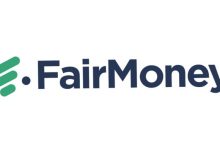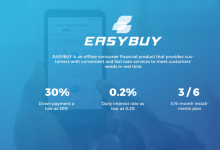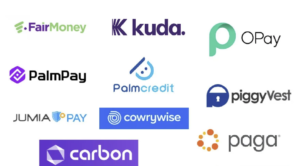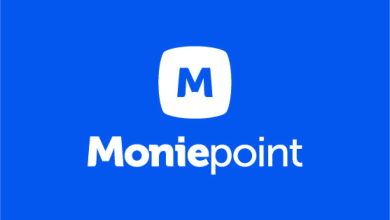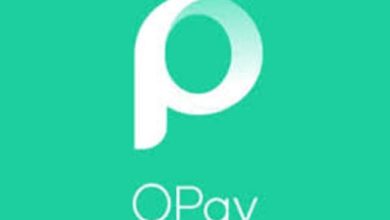Top Reliable Business Loan Providers in Nigeria: Funding Options for Entrepreneurs and Startups in Nigeria
You Might want to start a business today and be wondering, where would you get the capital to launch such a business, these challenges are been faced by many Nigeria who desires to become an entrepreneur, fortunately, there are several reliable loan providers in Nigeria, who are willing to lend out capital to individual s or startups, not only are this loan providers reliable, they also offer flexible repayment rates and convenient conditions.
For this context, I will be guiding you through the top reliable business loan providers in Nigeria, which offer loans to small and medium-sized enterprises (SMEs). what you should look out for before choosing any lending providers are; Interest rates and processing times. Loan tenure and Collateral requirements.
Top Reliable Business Loan Providers in Nigeria
Development Bank of Nigeria (DBN)
The Development Bank of Nigeria (DBN), established in 2017, is a national development finance institution. Its primary mission is to provide funding and credit guarantees to eligible financial intermediaries such as commercial banks, microfinance banks, and specialized financial institutions. These intermediaries then extend long-term loans of up to 10 years to Micro, Small, and Medium Enterprises (MSMEs) in Nigeria at competitive interest rates. DBN has formed partnerships with several financial institutions in the country to facilitate MSME funding, supporting activities like working capital, asset acquisition, and infrastructure development. The bank’s interest rates vary from 8% to 15% based on the borrower’s risk profile.
Lapo Microfinance Bank
Lapo Microfinance Bank, founded by Mr. Godwin Ehigiamusoe, is a registered and authorized microfinance institution operating in Nigeria. It caters to the financial needs of low-income individuals, small business proprietors, and entrepreneurs. To access loans from Lapo Microfinance Bank, aspiring entrepreneurs and business owners can visit one of its branches, meeting the necessary criteria. The bank offers a diverse array of loan products, encompassing microcredit, SME loans, and agricultural financing, with interest rates spanning from 6% to 10%. Loan applicants are typically required to provide collateral and guarantors, with loan terms extending from 6 to 24 months to accommodate various financial needs.
Sterling Bank Plc
Sterling Bank, a leading commercial bank in Nigeria, offers a diverse array of business loan solutions catering to enterprises of all sizes. These encompass financing for working capital, asset acquisition, and project finance, fostering business growth and development. The bank distinguishes itself with competitive interest rates that span from 9% to 20%, along with flexible loan terms ranging from 3 to 48 months. Sterling Bank extends its financial services to both small and large businesses, providing working capital loans, asset purchase financing, and trade finance options. Collateral is typically required for loan approval, ensuring responsible lending practices and enabling businesses to access the funds they need.
NIRSAL Microfinance Bank
NIRSAL Microfinance Bank, a subsidiary of the Nigeria Incentive-Based Risk Sharing System for Agricultural Lending (NIRSAL), was established in 2011 to tackle the challenges within Nigeria’s agricultural lending sector. This institution provides financial support to small and medium-sized enterprises (SMEs) and agribusinesses, aiming to stimulate economic growth and development. NIRSAL Microfinance Bank offers a range of loan products, encompassing agricultural financing, working capital loans, and asset acquisition funding. However, in contrast to LAPO Microfinance Bank, NIRSAL generally imposes higher interest rates, varying from 9% to 19%, contingent on the borrower’s risk profile. Additionally, NIRSAL offers technical assistance and advisory services to enhance business operations and facilitate access to financing.
Bank of Industry
The Bank of Industry (BOI) is a Nigerian development finance institution under federal government control, dedicated to extending loans to enterprises across diverse economic subsectors. BOI offers a range of lending options, including equipment loans, term loans, and working capital loans, with negotiable terms and highly competitive interest rates. Additionally, BOI goes beyond financial support, offering non-financial assistance such as capacity building and business consultancy services to aid businesses in their growth and development endeavors. This multifaceted approach positions BOI as a valuable partner in fostering economic advancement and sustainability for companies in Nigeria.
African Development Bank (AfDB)
The African Development Bank (AfDB) is a prominent multilateral development finance institution dedicated to fostering economic growth and development across African nations. Its primary focus lies in supporting critical sectors such as infrastructure and agriculture through funding and technical assistance. In Nigeria, AfDB extends financial support to Small and Medium Enterprises (SMEs) through its private sector lending entity, the African Development Bank Group (AfDB Group). The bank provides an array of loan options encompassing working capital loans, trade finance, and project financing. Interest rates and loan terms offered by AfDB vary based on the specific loan product and the risk profile of the borrower, ensuring tailored financial solutions.
Read Also: Complete list of ongoing Nigerian federal government FGN and CBN loans and grants for 2023
Aella Credit
Aella Credit, a rapidly growing fintech startup in Nigeria, specializes in extending loans to individuals and small businesses. Leveraging cutting-edge technology, the company offers a distinct advantage with its remarkably swift loan approval process, often taking just minutes. This expeditious service caters to enterprises in need of immediate funding. Notably, Aella Credit stands out by not mandating collateral, thus providing accessibility to small businesses lacking substantial assets for security. To initiate the loan application process, businesses are required to download the Aella Credit app, create an account, and furnish personal, business, and bank account details, streamlining the borrowing experience.
SMEDAN
The Small and Medium Enterprises Development Agency of Nigeria (SMEDAN) is a government agency dedicated to supporting small and medium enterprises (SMEs) in Nigeria by providing tailored financial assistance. SMEDAN’s loan offerings cater to the unique needs of small businesses and entrepreneurs. Their Conditional Grant Scheme for Micro Enterprises combines a grant of up to N50,000 and a repayable loan of up to N900,000, spread over three years at a 9% annual interest rate. To qualify, businesses must be registered with the Corporate Affairs Commission (CAC) and possess a valid Tax Identification Number (TIN).
RenMoney
RenMoney, established in 2012 by Oluwatobi and Ikenna Ejimofo, is a prominent financial institution in Nigeria. This private company specializes in offering loans and savings products to its customers. RenMoney operates as a registered and licensed lending entity in Nigeria, holding accreditation from both the Central Bank of Nigeria and the Lagos State Government. As a reputable player in the financial sector, RenMoney provides a range of financial services to meet the diverse needs of its clientele, contributing to the accessibility and growth of financial resources for individuals and businesses across Nigeria.
GroFin
GroFin is a prominent development finance institution with a focus on empowering small and growing businesses across Africa and the Middle East. Notably, GroFin excels in supporting key sectors vital for economic growth, including healthcare, education, manufacturing, and agriculture. What sets GroFin apart is its ability to provide customized financing solutions, offering debt, mezzanine, and equity financing tailored to each business’s unique requirements. Beyond financial assistance, GroFin extends non-financial support, encompassing business advisory services and access to networks and markets, fostering business growth and competitiveness. With loan amounts spanning from $100,000 to $1.5 million, loan terms ranging from 3 to 7 years, and interest rates between 12% and 24%, GroFin plays a crucial role in fueling entrepreneurial success. To secure a business loan, applicants must furnish a comprehensive business plan, financial projections, and collateral, and undergo a rigorous due diligence process to assess business viability and potential impact.
F.A.Q
What kind of loan is used to help an entrepreneur?
The most valuable loan for entrepreneurs is a line-of-credit loan. It provides short-term access to funds up to a predetermined limit, functioning like an extended cash reserve. Interest is incurred only on the amount used, from the moment it’s withdrawn until repayment. This type of loan offers flexibility and helps entrepreneurs manage cash flow, handle unexpected expenses, and seize opportunities, making it an ideal choice for small business owners.
Which organization can help with funding in Nigeria?
The Bank of Industry (BOI) is a prominent organization in Nigeria that assists with funding. As a government-owned development finance institution, BOI extends various financing options, including equity-free loans, to support startups and SMEs across the country. These loans come with flexible tenors, ranging from 1 to 5 years, making BOI a valuable resource for entrepreneurs seeking financial assistance to grow and expand their businesses in Nigeria.
How much is Smedan grant?
The Small and Medium Enterprise Development Agency of Nigeria (SMEDAN) is offering a grant opportunity ranging from $100,000 to $1,000,000 for Micro, Small, and Medium Enterprises (MSMEs) in Nigeria and throughout Africa. This grant program aims to provide substantial financial support to empower and facilitate the growth of these businesses, fostering economic development and sustainability in the region.
Where do entrepreneurs get their money?
Entrepreneurs secure funding for their ventures through various sources. Initially, they often invest their capital. In the early stages, support from family and friends may contribute to financing. As the business grows, entrepreneurs might seek well-capitalized partners to bolster financial support. Additionally, they can explore avenues such as bank loans, venture capital, angel investors, crowdfunding, and grants. Diversifying funding sources aligns with the evolving needs and stages of the entrepreneurial journey.
What is the most common source of small business financing?
The most prevalent source of financing for small businesses is banks. They play a significant role in providing loans to such enterprises. However, securing funding from banks can be challenging for startups, as lending standards often prioritize a track record of profits, which many startups lack. This hurdle makes it tougher for new businesses to obtain loans from traditional banking institutions, leading them to explore alternative funding options like angel investors, venture capital, or crowdfunding.
Conclusion
In conclusion to all we’ve been saying lately when exploring the top reliable business loan providers in Nigeria, it’s essential to consider several critical criteria. These factors, including loan interest rates, loan tenure, collateral requirements, loan processing time, and loan repayment terms, play a pivotal role in determining the ideal funding option for entrepreneurs and startups in Nigeria. By carefully considering these aspects, businesses can make informed decisions, ensuring they secure the financing that best suits their unique needs and sets them on the path to success in the dynamic Nigerian business landscape.
